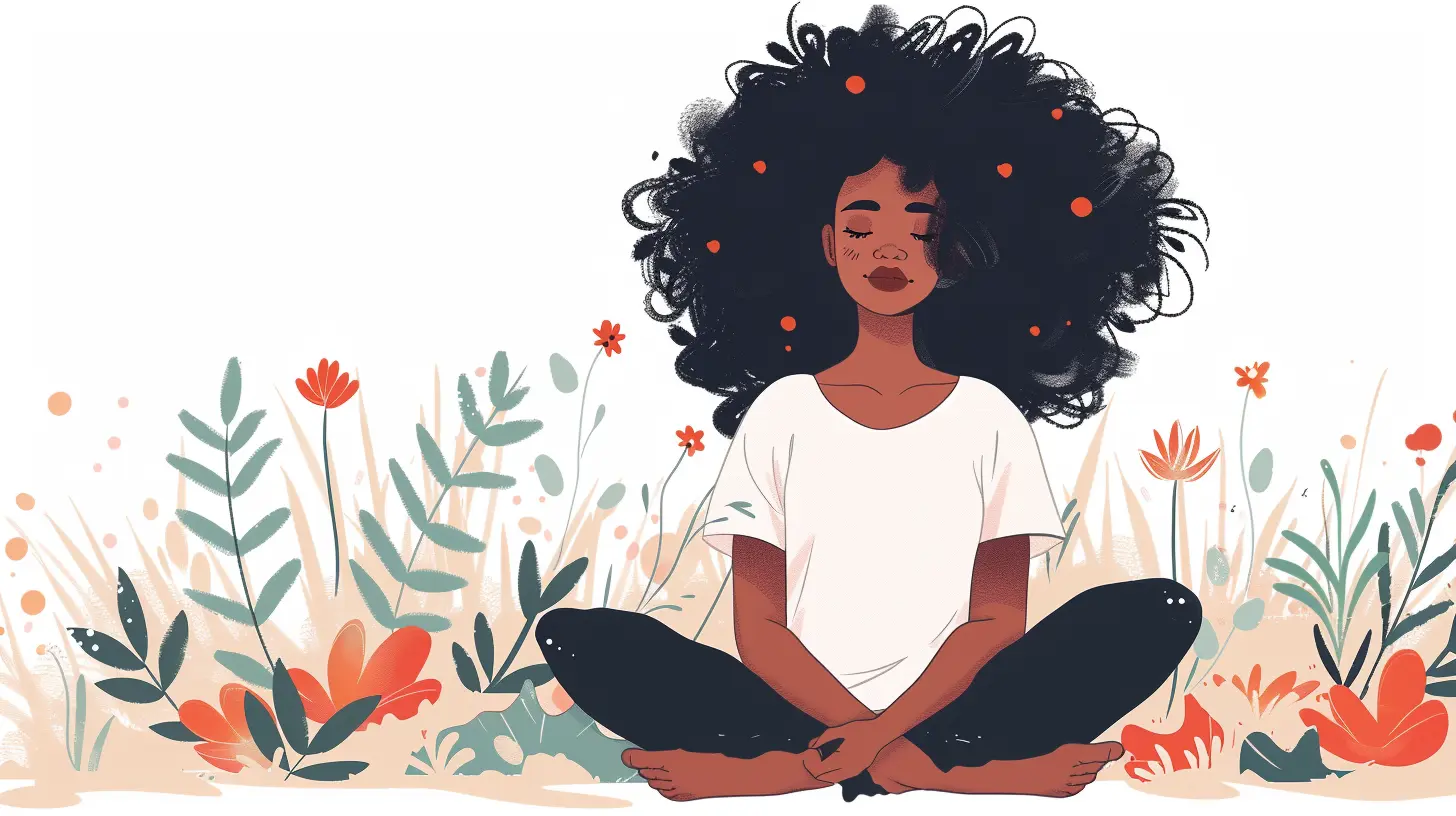Restoring Your Mental Health After Baby: A Gentle Guide
22 August 2025
So, you've just brought a tiny human into the world. Congrats, Mama (or Papa)! That’s no small feat. You’ve survived pregnancy, powered through labor, and now you’re navigating the beautiful chaos of parenthood. There are diaper changes, 3 a.m. feedings, and that lovely thing no one warns you about—rollercoaster emotions. If your mind feels like it's riding shotgun on a tilt-a-whirl, you're not alone.
Let’s be real: the journey after birth is magical… and messy. And sometimes, in the midst of caring for your baby, you forget to care for yourself. That’s why we're here—with heart-to-heart guidance on restoring your mental health after baby. Think of this as your permission slip to breathe, feel, and heal.

The Truth Behind Postpartum Mental Health
It's More Than "Just Baby Blues"
You’ve probably heard of the baby blues—that emotional dip that happens to around 80% of new moms within the first two weeks postpartum. You might cry for no reason, feel moody, or just not like yourself. Totally normal.But when those feelings linger or intensify, it may be a deeper issue: postpartum depression (PPD), anxiety, or even PTSD from a difficult birth. And it's not just moms—dads or partners can experience this too.
The truth? Your mental health matters just as much as your baby's diaper schedule. It's not selfish to take care of your mind—it's essential.
Step One: Acknowledging the Storm
Before you can calm the storm, you have to admit it's raining.Give Yourself Permission to Not Be Okay
We live in a world where perfection gets plastered all over Instagram. Tidy nurseries, sleeping babies, glowing moms. But real life? It's spit-up on your shoulder and running on two hours of sleep.It’s okay to not love every minute of motherhood.
It’s okay to miss your old life.
It’s okay to feel overwhelmed.
Don’t bottle it up. Naming your feelings is the first step to healing. Say it out loud: “I’m struggling.” That’s not weakness—it’s incredible strength.
Step Two: Build Your Support Squad
Even superheroes have sidekicks. You don’t have to (and shouldn’t) do this alone.Let People In
Your partner, your mom, your best friend—the people who love you don’t need you to pretend you're fine. Let them help, even if it's just holding the baby while you nap or bringing over a hot meal.And hey, professional help? Totally cool. Talking to a therapist doesn’t mean you're broken. It means you're brave enough to get better.
Find Your Village
Whether it’s a local mom group, an online community, or a postpartum support group—connect with others walking the same path. You’d be surprised how healing it is to talk to someone who just gets it.
Step Three: Gentle Habits to Recharge Your Mind
Now that we’ve acknowledged your feelings and formed a support system, let’s dive into the daily practices that quietly but powerfully restore your mental health.1. Prioritize Sleep (Yes, Really)
“Sleep when the baby sleeps” sounds like a joke, right? (Because when exactly are you supposed to shower, eat, or simply breathe?) But sleep is like emotional glue holding your whole being together. Lack of it can make everything feel worse.Try:
- Napping when you can, even if it’s just 20 minutes
- Swapping night duties with your partner
- Letting go of non-essential chores to rest more
Your mental health is worth more than an immaculate kitchen.
2. Nourish Your Body = Feed Your Mind
Your body just created life—it deserves better than leftover toddler snacks. Good nutrition plays a huge role in mental health. And no, you don’t need to go full-on “clean eating guru.” Just focus on simple, whole foods that give you energy and clarity.Consider:
- Smoothies packed with fruits, veggies, and protein
- Easy sheet-pan meals with healthy fats and lean meats
- Staying hydrated (even a little dehydration can make you irritable)
Think of food as fuel—your body’s way of saying "thank you" to your soul.
3. Move Your Body, Even a Little
We're not talking about marathon training here. But getting your blood flowing sparks those feel-good chemicals in your brain. A walk around the block with the stroller, a 10-minute stretch while the baby naps—tiny movements, big impact.It's not about weight loss. It’s about finding peace in motion.
4. Journal the Chaos
Your mind is noisy after birth—like a cluttered closet that needs cleaning. Writing it out can bring clarity. Grab a notebook and scribble freely. No rules. Just let it pour.Write about:
- Your emotions (all of them)
- The wild moments you don’t want to forget
- Silent gratitude for tiny wins
Your journal is your safe space, a mirror for your mind.
Step Four: Set Boundaries Like a Boss
You don’t have to attend every event, answer every call, or entertain every visitor who wants to “see the baby.” Your well-being comes first.Say “No” Without Guilt
A polite, “Thanks, but I need to rest,” is enough. Don’t overexplain. Protect your energy like it’s sacred (because it is). Your boundaries are your mental health’s gatekeepers.Step Five: Invite Joy Back In Slowly
Healing isn’t just about surviving—it’s about finding joy again, one breath at a time.Do One Thing That’s Just for You
Every day, try to do one small thing that lights you up. Maybe it’s a hot cup of tea in silence. Maybe it’s watching your favorite show while the baby naps. Or painting your toenails (even if no one sees them).Tiny joys are like cracks of sunlight through the clouds.
Embrace Imperfection
Let go of the pressure to be the “perfect” parent. No one has it all together. The laundry can wait. The dishes can pile. What matters most is that your baby is loved—and you feel loved too.When to Seek Help (And Why It’s a Strength)
There’s no medal for suffering in silence. If your sadness feels too heavy, your anxiety is constant, or you're having thoughts that scare you—it’s time to talk to a professional.Signs you may need help:
- Constant sadness or crying
- Trouble bonding with your baby
- Panic attacks or excessive worry
- Thoughts of harming yourself or your baby
These feelings are more common than you think—and completely treatable. Reaching out is not just okay, it’s courageous.
Let’s Get Real: You’re Already Doing Enough
Hey, by reading this far, you’ve already taken a huge step. You care about your mental health. That means you’re already on the path to healing.Remember:
- Healing after baby is not linear. Good days, bad days—it’s all part of it.
- You are more than just a parent. You're still YOU, and that person deserves care too.
- You don't need to wait to feel “normal” again to be worthy of rest, joy, and support.
Give yourself grace. Take tiny steps. Speak kindly to yourself. You’re not failing—you’re figuring it out, one messy day at a time.
Final Thoughts: You've Got This
Parenthood is the ultimate paradox—it cracks you open and fills you up all at once. But within that vulnerability lives immense strength. You’re allowed to struggle. You’re allowed to ask for help. And most importantly, you're allowed to heal.So here’s your gentle reminder: Your mental health matters just as much as your baby's next milestone.
Breathe, rest, laugh, cry, repeat. Healing isn’t a finish line—it’s a journey. And you, my friend, are doing beautifully.
all images in this post were generated using AI tools
Category:
Postpartum RecoveryAuthor:

Kelly Snow
Discussion
rate this article
1 comments
Tala McClain
This article provides essential strategies for new parents, emphasizing self-care and support to nurture mental well-being post-baby.
August 28, 2025 at 3:27 AM

Kelly Snow
Thank you! I'm glad you found the strategies helpful for new parents. Prioritizing self-care is crucial for mental well-being during this transition.


